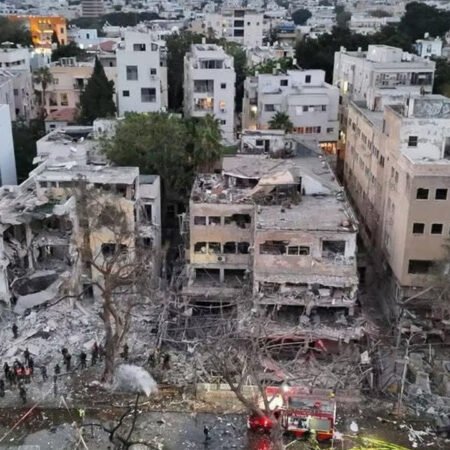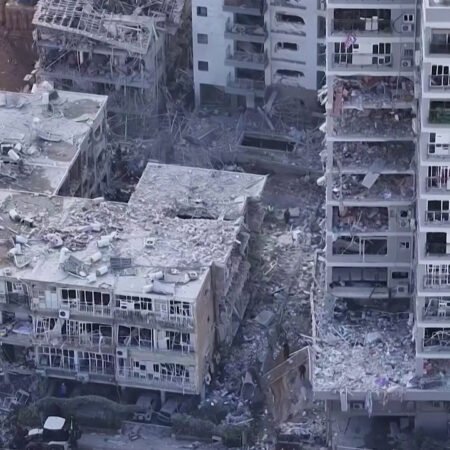In a dramatic escalation, Iran launched its largest-ever missile attack on Israel in the early hours of Sunday morning, raining over 100 ballistic missiles across major Israeli cities including Tel Aviv, Jerusalem, and Haifa.
The barrage came hours after Israeli airstrikes hit Tehran throughout the day. In retaliation, Iran’s pre-dawn attack ignited massive explosions across Israel, with reports confirming fires at the Haifa power plant, numerous structural damages, and at least 8 fatalities so far.
Israeli media outlets, including Channel 12 and The Times of Israel, declared this the most severe missile attack Israel has experienced from Iran to date. Once again, Israel’s air defense systems struggled to intercept the missiles, raising alarm among civilians and political leadership alike.
Haifa’s mayor, Yona Yahav, confirmed to Channel 12 News that three workers were killed in a facility that is “vital to the region but may need to be relocated now.” He expressed regret over the loss but emphasized the importance of reevaluating the infrastructure in high-risk areas.
Meanwhile, in southern Israel, at least 8 people have been confirmed dead and nearly 300 injured, with dozens hospitalized, according to Israel’s Magen David Adom emergency service. Most of the injured sustained light to moderate wounds, though rescue efforts are still ongoing in multiple affected areas.
Specific casualties include:
- 4 deaths reported in the Petah Tikva area.
- 1 fatality in Bnei Brak, where a missile struck a residential block, causing widespread destruction.
- 92 people hospitalized, with some still trapped under debris.
The Haifa region remains under high alert due to ongoing fires and structural collapse. Emergency crews are working around the clock to locate missing persons, especially in northern cities hit hardest by the surprise barrage.
This attack, being referred to by Iranian sources as part of the “True Promise III” operation, is a direct response to Israeli strikes on Tehran’s nuclear and military assets. Iran has warned that further aggression will trigger even more intense retaliatory action.
As global concerns rise, there’s growing pressure on both nations to de-escalate before the conflict spirals into a full-scale regional war.










No Comment! Be the first one.